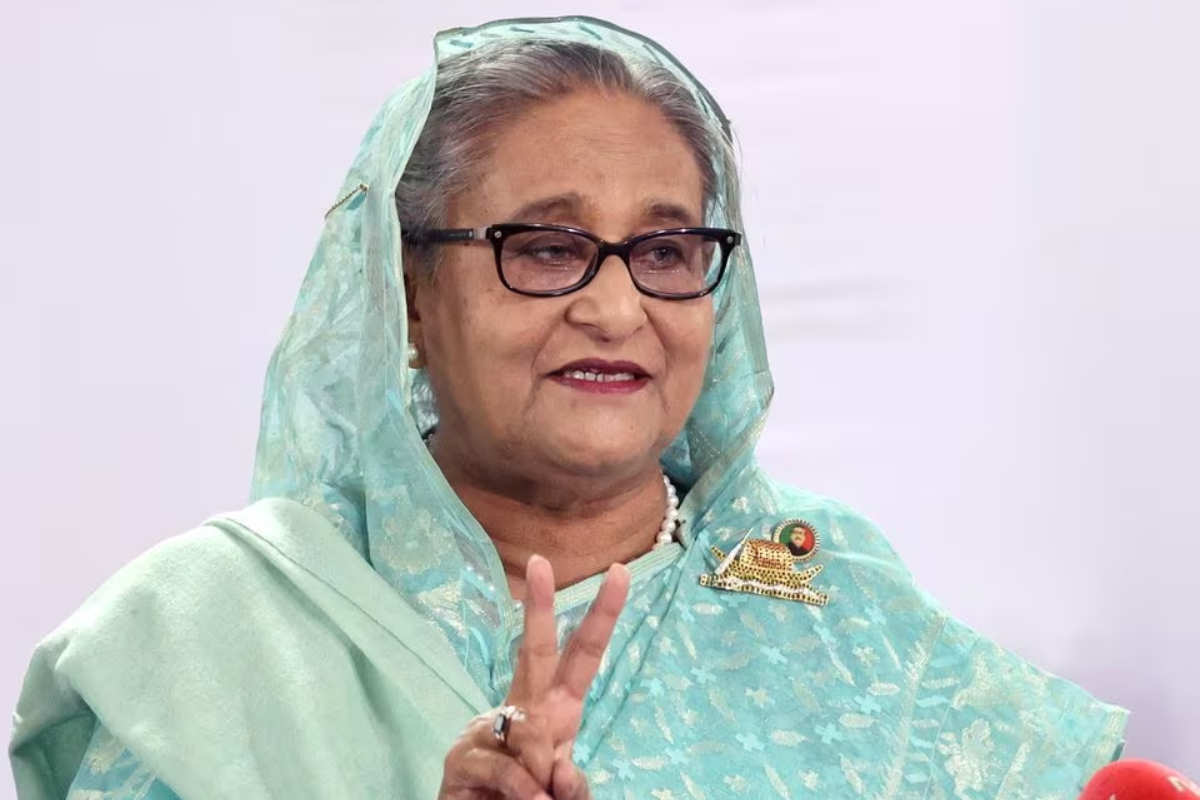US says Bangladesh elections were not free and fair
WASHINGTON: The United States shares the view that the weekend’s elections in Bangladesh were not free and fair, the US State Department said, adding that Washington was concerned by reports of vote irregularities and condemned violence that took place.
Bangladesh Prime Minister Sheikh Hasina swept to a fourth straight term in power, with her party winning almost 75% of the seats in Sunday’s general election. The main opposition Bangladesh Nationalist Party (BNP) boycotted the vote and turnout was low.
The US State Department said that Washington remains concerned by the arrests of thousands of political Opposition members and by reports of irregularities on elections day in Bangladesh.
“The United States shares the view with other observers that these elections were not free or fair and we regret that not all parties participated,” the statement said.
While noting that Sheikh Hasina’s Awami League won a majority of seats, the State Department said that Washington condemns violence that took place during elections and in the months leading up to it.
“We encourage the Government of Bangladesh to credibly investigate reports of violence and to hold perpetrators accountable. We also urge all political parties to reject violence,” it said.
The State Department added that the U.S. supports the people of Bangladesh and their aspirations for democracy, freedom of peaceful assembly, and freedom of expression.
“Looking ahead, the United States remains committed to partnering with Bangladesh to advance our shared vision for a free and open Indo-Pacific, to supporting human rights and civil society in Bangladesh, and to deepening our people-to-people and economic ties,” it said.
Cosmetic democracy
UN Human Rights Chief Volker Türk called on Bangladesh’s newly elected government to take steps to renew the country’s commitment to democracy and human rights, voicing distress that the environment for Sunday’s poll was marred by violence and repression of Opposition candidates and supporters.
The top UN human rights official noted that democracy was “hard won” in Bangladesh and “must not become cosmetic.” Underlining that Bangladesh has been a role model of development, Mr Türk said he “fervently hopes this will translate into the political and institutional spheres too. The future of all Bangladeshis is at stake.”
The UN official noted that mass arrests, threats, enforced disappearances, blackmailing and surveillance were all methods reportedly used by law enforcement officials prior to the ballot, which was boycotted by the main opposition. Acts of political violence, including arson attacks allegedly committed by Opposition groups, have also been reported.
“Around 25,000 Opposition supporters have been arrested, including key party leaders, since October, the UN official said. At least 10 Opposition supporters reportedly died – or were killed – in custody in the last two months, raising serious concerns about possible torture or harsh conditions of detention,” the UN Human Rights chief said.
He said many human rights defenders have been forced to go into hiding and some have fled the country, while dozens of suspected enforced disappearance cases have been reported, mostly in November. “These incidents must be independently investigated, and those responsible must be brought to justice in fair and transparent trials,” Mr Türk said.
“Violations and irregularities during the campaign and on election day itself should also be thoroughly and effectively investigated.” Mr. Türk implored the government to take the necessary steps to ensure that the human rights of all Bangladeshis are fully taken into account, and to strengthen the underpinnings of a truly inclusive democracy in the country.
The ruling Awami League (AL) won 223 seats in the 300-member Parliament in the polls boycotted by the Bangladesh Nationalist Party (BNP).
The Bangladesh government had invited a large number of foreign observers from India and other countries, as well as multilateral organisations, to observe the elections. The election was Bangladesh’s 12th since independence from Pakistan in 1971. Rights groups have warned of a virtual one-party rule by Hasina’s Awami League.
The daughter of Sheikh Mujibur Rahman, founding father of Bangladesh, Hasina, 76, first became prime minister in 1996. Hasina played down the opposition’s boycott and said her aim was to boost the economy.


